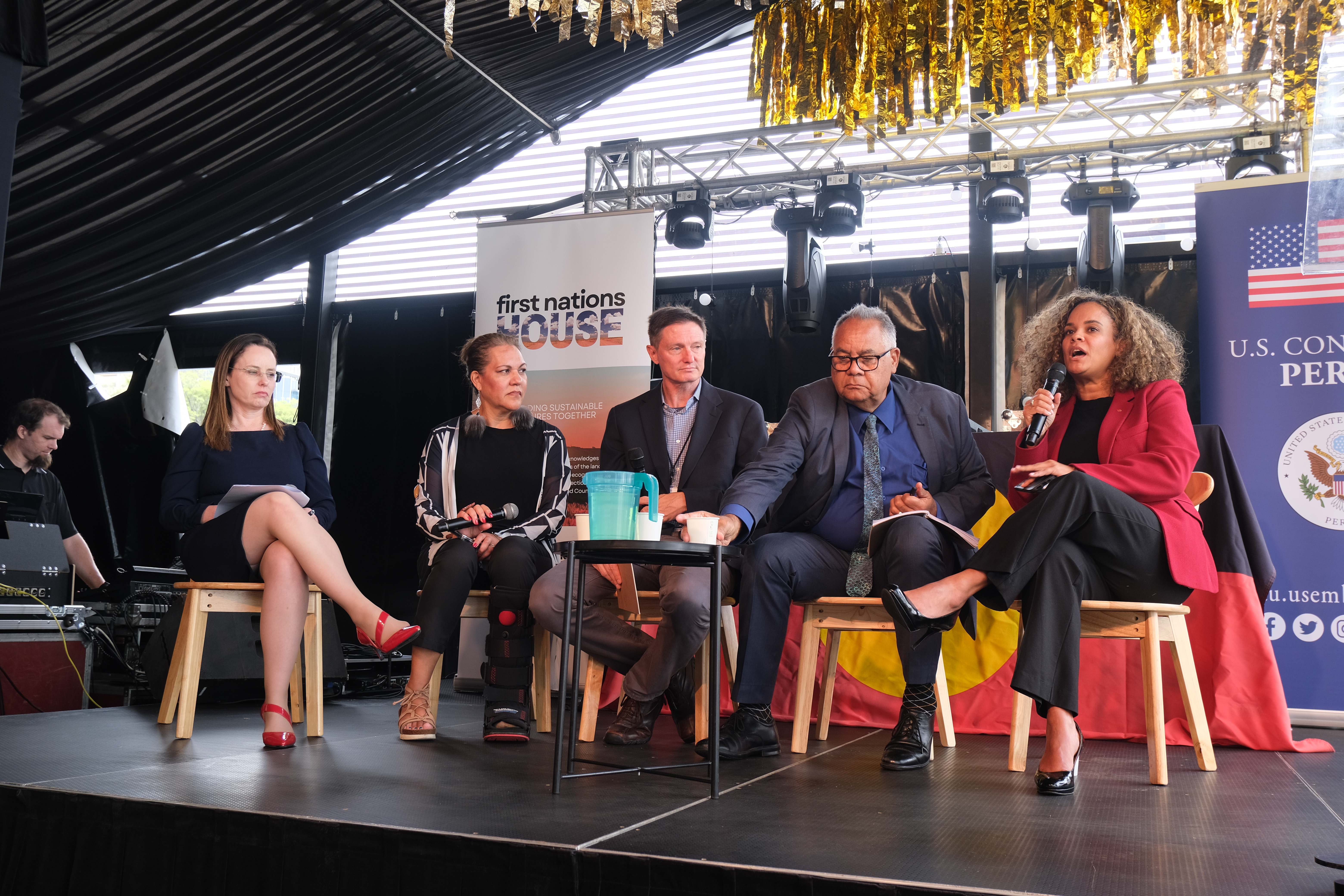Indigenous leaders from the United States, Canada, and Australia recently gathered in Perth to discuss global issues such as protecting cultural heritage, asserting sovereignty, and driving economic growth.
Moderated by U.S. Consul General in Western Australia, Siriana Nair, the panel shared practical insights and success stories, highlighting the power of Indigenous leadership.
From safeguarding intellectual property to creating international trade opportunities, the panel revealed common challenges and innovative strategies to support Indigenous communities.
A central theme emerged - Indigenous leadership is not only essential for their communities but for creating a better world.
Sunsinger Consulting owner and Chippewa Cree women, Dawn Houle, said protecting creative knowledge and cultural heritage is essential.
"Once Indigenous artists put their designs on platforms like Facebook or Instagram, they're often stolen by foreign companies, mass-produced, and sold without permission. It's heartbreaking," Ms Houle said.
To address this, Ms Houle has worked to establish cultural monitoring companies. These companies empower tribal knowledge keepers to preserve sacred traditions while generating income for their communities.
"Our environment, our stories, our designs—they are more than assets. They are our identity," Ms Houle said.
"And preserving them is critical not just for our survival but for the world's cultural richness."
The idea resonated with Chickasaw Nation man and lecturer at Harvard University, Eric Henson, who emphasised economic success must be rooted in governance systems that reflect Indigenous values—a concept he calls "cultural match".
"Good governance is about creating structures that align with the cultural norms of the community," Mr Henson said.
He pointed to the Ute tribe in Colorado as an example, describing how they took control of their energy resources, transformed their economy, and generated billions in revenue.
"It's about taking risks, making decisions, and learning from the outcomes—whether they succeed or fail," he said.
Mr Henson also emphasised the importance of decision-making power within communities.
"You can't build sustainable economies if Indigenous communities don't control their own resources and decisions," he said.

For Australian entrepreneur Kim Collard, Indigenous business success is about breaking barriers and creating opportunities.
"The Aboriginal business sector in Australia is still young, but it's growing fast," he said.
Mr Collard's journey is an example of this growth. After founding two of Australia's largest Indigenous-owned businesses, he created the Bibbulmun Fund, which has invested more than $1.6 million in Aboriginal community projects.
"Opportunities start small," he explained.
"But with consistent delivery, we can prove that Indigenous businesses are not just viable—they are vital to the economy."
Canadian Australian Chamber of Commerce CEO, Melissa Wharton, stressed the need for stronger international collaboration.
She described efforts to create Indigenous trade missions between Canada and Australia, focusing on cultural respect and partnerships.
"Trade missions are about more than transactions," she said.
"They're about building relationships that respect and amplify Indigenous voices."
Despite progress, the panelists acknowledged ongoing challenges. Access to funding, intellectual property theft, and systemic barriers still hinder many Indigenous businesses.
However they agreed collective action could overcome these obstacles.
"We have to move beyond tokenism," Ms Wharton said.
"Real change requires commitment and resources from governments, corporations, and communities."
The panel concluded with a vision of a global network of Indigenous leaders working together to drive change.
"We're the first generation at the forefront of the Indigenous business sector," Mr. Collard said.
"But the next generations will be even stronger. We are building a legacy that will make us a force to be reckoned with."
In closing, moderator Ms Nair reinforced the importance of Indigenous leadership.
"The challenges are real, but so are the solutions. Indigenous leadership is not just a benefit to their communities—it's a benefit to the world," she said.
